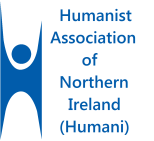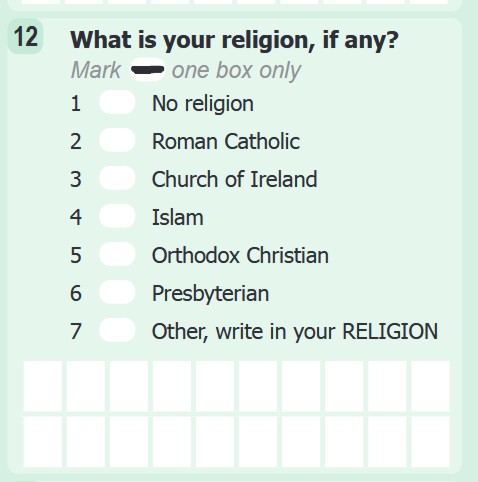The Dáil and Senate on 23 January 2024 passed 2 Bills for 2 Referenda to make 2 changes to Article 41 of the Constitution of Ireland.
The day to Vote on the 2 Referenda will be Friday 08 March 2024.
Each voter will receive 2 Ballot Papers, one for each Amendment/ Referendum.
To help people to decide how they will vote, the Mid-West Humanists will hold an Open Meeting on Tuesday 20 February 2024.
To help with people’s decisions, we show here the text of Article 41 as it is now.
After that, we show the text of Article 41 as it will be –
if Amendment no 39 is passed by the people;
if Amendment no 40 is passed by the people;
if both Amendments nos 39 and 40 are passed by the people.
Article 41, as it is now
1. 1° The State recognises the Family as the natural primary and fundamental unit group of Society, and as a moral institution possessing inalienable and imprescriptible rights, antecedent and superior to all positive law.
2° The State, therefore, guarantees to protect the Family in its constitution and authority, as the necessary basis of social order and as indispensable to the welfare of the Nation and the State.
2. 1° In particular, the State recognises that by her life within the home, woman gives to the State a support without which the common good cannot be achieved.
2° The State shall, therefore, endeavour to ensure that mothers shall not be obliged by economic necessity to engage in labour to the neglect of their duties in the home.
3. 1° The State pledges itself to guard with special care the institution of Marriage, on which the Family is founded, and to protect it against attack.
2° A Court designated by law may grant a dissolution of marriage where, but only where, it is satisfied that –
i there is no reasonable prospect of a reconciliation between the spouses,
ii such provision as the Court considers proper having regard to the circumstances exists or will be made for the spouses, any children of either or both of them and any other person prescribed by law, and
iii any further conditions prescribed by law are complied with.
3° Provision may be made by law for the recognition under the law of the State of a dissolution of marriage granted under the civil law of another state.
4. Marriage may be contracted in accordance with law by two persons without distinction as to their sex.
————————————————-
In the versions of Article 41 that are possible after being amended,
bold indicates words that will be added;
strikethrough indicates words that will be removed.
plain text indicates words that will remain the same
Article 41, as it will be if Amendment no 39 is passed
1. 1° The State recognises the Family, whether founded on marriage or on other durable relationships, as the natural primary and fundamental unit group of Society, and as a moral institution possessing inalienable and imprescriptible rights, antecedent and superior to all positive law.
2° The State, therefore, guarantees to protect the Family in its constitution and authority, as the necessary basis of social order and as indispensable to the welfare of the Nation and the State.
2. 1° In particular, the State recognises that by her life within the home, woman gives to the State a support without which the common good cannot be achieved.
2° The State shall, therefore, endeavour to ensure that mothers shall not be obliged by economic necessity to engage in labour to the neglect of their duties in the home.
3. 1° The State pledges itself to guard with special care the institution of Marriage, on which the Family is founded, and to protect it against attack.
2° A Court designated by law may grant a dissolution of marriage where, but only where, it is satisfied that –
i there is no reasonable prospect of a reconciliation between the spouses,
ii such provision as the Court considers proper having regard to the circumstances exists or will be made for the spouses, any children of either or both of them and any other person prescribed by law, and
iii any further conditions prescribed by law are complied with.
3° Provision may be made by law for the recognition under the law of the State of a dissolution of marriage granted under the civil law of another state.
4. Marriage may be contracted in accordance with law by two persons without distinction as to their sex.
————————————————-
Article 41, as it will be if Amendment no 40 is passed
1. 1° The State recognises the Family as the natural primary and fundamental unit group of Society, and as a moral institution possessing inalienable and imprescriptible rights, antecedent and superior to all positive law.
2° The State, therefore, guarantees to protect the Family in its constitution and authority, as the necessary basis of social order and as indispensable to the welfare of the Nation and the State.
2. 1° In particular, the State recognises that by her life within the home, woman gives to the State a support without which the common good cannot be achieved.
2° The State shall, therefore, endeavour to ensure that mothers shall not be obliged by economic necessity to engage in labour to the neglect of their duties in the home.
As Amendment no 40 deletes all of Section 2, it reduces the number of each later section by 1
2. 1° The State pledges itself to guard with special care the institution of Marriage, on which the Family is founded, and to protect it against attack.
2° A Court designated by law may grant a dissolution of marriage where, but only where, it is satisfied that –
i there is no reasonable prospect of a reconciliation between the spouses,
ii such provision as the Court considers proper having regard to the circumstances exists or will be made for the spouses, any children of either or both of them and any other person prescribed by law, and
iii any further conditions prescribed by law are complied with.
3° Provision may be made by law for the recognition under the law of the State of a dissolution of marriage granted under the civil law of another state.
3. Marriage may be contracted in accordance with law by two persons without distinction as to their sex.
Amendment no 40 inserts a new Article, with the title “Care”
ARTICLE 42B Care
The State recognises that the provision of care, by members of a family to one another by reason of the bonds that exist among them, gives to Society a support without which the common good cannot be achieved, and shall strive to support such provision.
————————————————-
Article 41, as it will be if Amendment nos 39 and 40 are passed
1. 1° The State recognises the Family, whether founded on marriage or on other durable relationships, as the natural primary and fundamental unit group of Society, and as a moral institution possessing inalienable and imprescriptible rights, antecedent and superior to all positive law.
2° The State, therefore, guarantees to protect the Family in its constitution and authority, as the necessary basis of social order and as indispensable to the welfare of the Nation and the State.
2. 1° In particular, the State recognises that by her life within the home, woman gives to the State a support without which the common good cannot be achieved.
2° The State shall, therefore, endeavour to ensure that mothers shall not be obliged by economic necessity to engage in labour to the neglect of their duties in the home.
As Amendment no 40 deletes all of Section 2, it reduces the number of each later section by 1
2. 1° The State pledges itself to guard with special care the institution of Marriage, on which the Family is founded, and to protect it against attack.
2° A Court designated by law may grant a dissolution of marriage where, but only where, it is satisfied that –
i there is no reasonable prospect of a reconciliation between the spouses,
ii such provision as the Court considers proper having regard to the circumstances exists or will be made for the spouses, any children of either or both of them and any other person prescribed by law, and
iii any further conditions prescribed by law are complied with.
3° Provision may be made by law for the recognition under the law of the State of a dissolution of marriage granted under the civil law of another state.
3. Marriage may be contracted in accordance with law by two persons without distinction as to their sex.
Amendment no 40 inserts a new Article, with the title “Care”
ARTICLE 42B Care
The State recognises that the provision of care, by members of a family to one another by reason of the bonds that exist among them, gives to Society a support without which the common good cannot be achieved, and shall strive to support such provision.
In the versions of Article 41 that are possible after being amended as above,
bold indicates words that will be added;
strikethrough indicates words that will be removed.
plain text indicates words that will remain the same.
We have 3 further posts relevant to deciding how to vote.
- You can read about the Open Meeting, on Tuesday 20 February 2024, about the Amendments and the Referenda.
- We show a list of changes that a voter might have wanted, though most of these are not included in the 2 Referenda. You could read this list to see if you can be clearer in your own mind what changes you wanted. You could compare your idea to what is included in the 2 Referenda. That may help you decide which way to vote.
- We show the words of Articles 42 and 42A, because they contain State support for duties of parents that will remain in the Constitution if a majority of the people vote Yes to Amendment no 40. Here are 3 reasons to read these Articles –
-
- Article 42 supports the duty of parents to provide Education to their children.
- Article 42A supports the duty of parents to provide all aspects of care to their children.
- Both Articles 42 and 42A refer to parents, that is, both mothers and fathers (non-sexist).
Filed under: constitution, Dáil Éireann, ireland, Meetings, political issues, Seanad Éireann, social issues | Tagged: constitution of ireland, equal rights, Human Rights, society | Leave a comment »










































